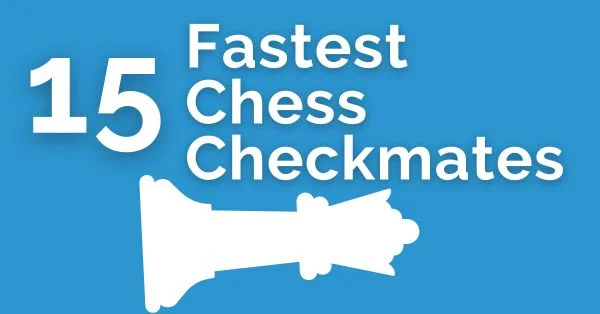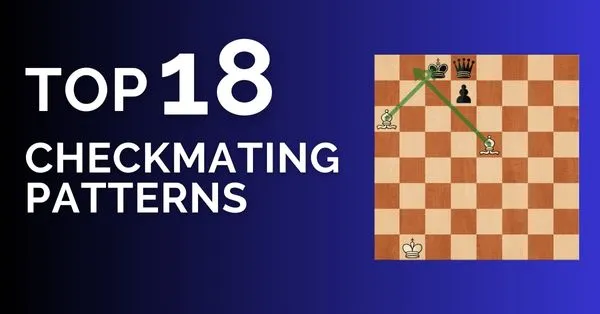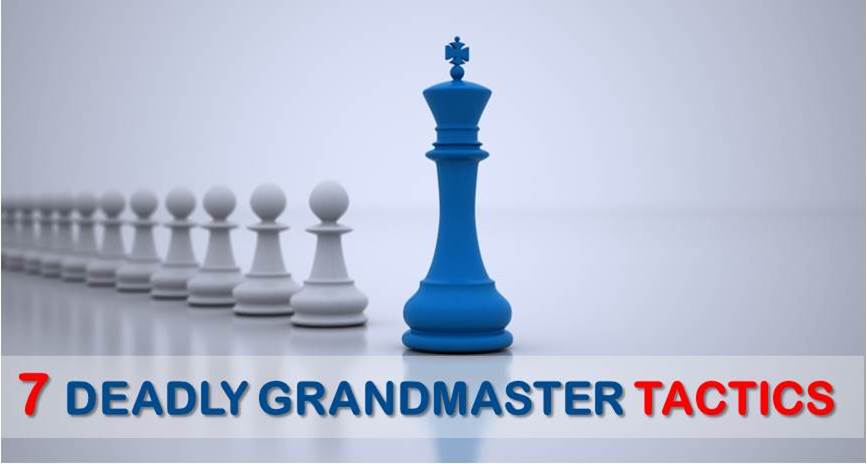5 Key Reasons You’re Not a Chess Master [Yet]
![5 Key Reasons You’re Not a Chess Master [Yet]](https://thechessworld.com/wp-content/uploads/2015/11/4-chess-master.webp)
All chess players want to become masters, but only 1% succeed and the other 99% fail. Is that because they don’t have talent, necessary IQ level or some other master traits? Nope. The 99% don’t reach the master level for a completely different set of reasons. Curious to find out why? Read on.
Most chess players don’t reach the master level for the following reasons:
1. They Don’t Set Goals
Setting goals is very important part of achieving them. By setting a goal and a deadline for when it should be achieved you will keep yourself motivated and increase your chances of success by as much as 500%. Keep in mind that the goals should be realistic, meaning you shouldn’t set a goal of becoming a Grandmaster in 3 month if you’re currently 1400 rated. Nor should you set a goal of learning all 1000 endgames from the endgame manual by heart in a week or two.
The goal is there to motivate you, not to kill you. That’s why picking an achievable goal is a very important step. After you have picked a realistic goal, you should document it. Take a piece of paper and write what your goal is, when you will achieve it and what happens if you don’t achieve it on time.
For example, you can write that your goal is to solve no less than 3 tactics problems per day, every day for one month of time, starting month/day/year.
If you don’t do that you will donate an extra 100$ (if that does not motivate you, you can go for 500 or 1000$) to the charity of your choice, won’t be able to use your phone for specified number of day, watch your favorite TV show or some similar “punishment”.
By simply having a realistic, written goal, deadline and consequences in case you fail to achieve it you will set yourself for success.
Ready to start systematic training that actually works?
Click here to start your training using the day-by-day program.
2. They Don’t Plan Their Training
Most chess players are training spontaneously, by randomly working on different aspects of chess that they feel comfortable with. Nothing is wrong with this approach, except that it usually doesn’t lead to improvement.
Wouldn’t it be great to improve your tactical vision so that you could see all of the threats 10 moves ahead?
Wouldn’t it be nice to study the endgames so that you don’t have to take chances when playing those Rook and Pawn endings?
Wouldn’t it be helpful to learn some positional game ideas as well as some attacking techniques? And indeed it would be nice to brush off your opening preparation, so that you don’t end up in these losing middlegames.
Surprisingly most chess players know what they need to be doing, but somehow they don’t do it. Having a precise study plan, that will keep you motivated and focused while providing you with the right resources will help you to become a better player.
3. They Don’t Schedule Their Time
Once you have the goal and the training plan it does not mean that you will automatically improve your game. You need to put the work first. And in order to do that, you need to schedule your day, so that you always have time to stick to the plan.
You will be much more likely to commit to a certain activity like jogging, weight-lifting or becoming a chess master if you schedule when you will do that. For example, you may train for 5 days per week from 8 to 9 am. Being consistent and working on chess in step-by-step manner will get you where you need to be.
4. They Don’t Track Progress
Having some sort of analytics or in other words tracking your chess improvement progress is very important if you want to become a stronger player. Writing down what problems you did, which ones you’ve solved correctly and which ones you didn’t is very important for realizing what you understand and what you don’t.
The same goes to the games you play. You need to track in what kind of openings/middlegames/endgames you perform best and worst at. Then, you need to make appropriate adjustments to fix your weaknesses and build on your strengths.
5. They Don’t Make Changes
Last, but not least, alternating your training routine once a month or so will help you to avoid the plateau in your chess. Have you noticed how easy it is to improve at first? While you’re lower rated, you can easily pickup as many as 200-300 points in matter of months.
Then, when you get stronger at chess, improving tends to become more difficult, partly because your brain gets used to the exercises you typically perform. Therefore, alternating your routine is crucial to avoid plateauing on the certain level.
If you want to improve your chess level, you need to have a clear study plan. If you aim for a dramatic improvement at chess you need to work on all of the elements of the game in a systematic way:
- tactics
- positional play
- attacking skills
- endgame technique
- classical games analysis
- psychological preparation
- and much more
That seems to be like a lot of things, and that is. But no worries, we have made it easy for you. Our comprehensive training course covers it all and much more. Sign up for 21 Day Training right now!










Comments: